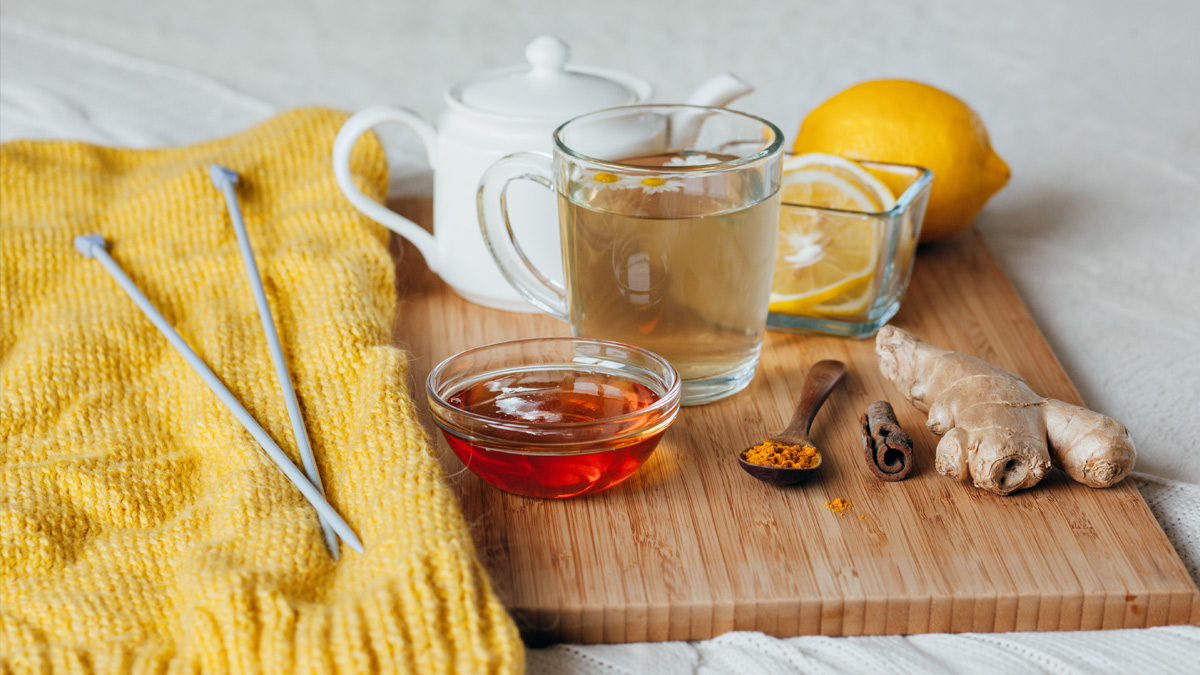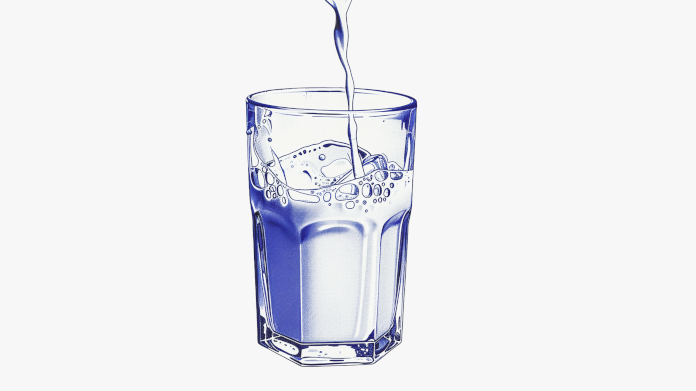
Turmeric
This multi-beneficial plant is recognised for its positive effect against dyspepsia – the collection of symptoms associated with problematic digestion (1). In addition, research suggests that turmeric stimulates the gall bladder (2), the organ responsible for releasing bile (secreted by the liver). Bile emulsifies fats to make them more digestible.
In addition to sprinkling it on food, turmeric can also be used to make a tea for drinking once or twice a day .
Peppermint
This common variety of mint offers proven benefits for alleviating the symptoms of indigestion. It is primarily known for relieving gastrointestinal spasms (stomach ache) and bloating, especially when combined with caraway (3). It can be used to make a simple tea by pouring boiling water on dried peppermint leaves, to be drunk as often as you like. Even more effective is essential oil of peppermint. It is highly concentrated so must be well-diluted (no more than a drop) in hot water and honey.
Attention: essential oils should always be used or consumed with the utmost caution. They are not recommended for women who are pregnant or breastfeeding, young children, or those suffering from various disorders. It’s important to seek advice from your pharmacist in order to avoid unnecessary risk.
Artichoke
Studies have proven that extract of artichoke leaf provides relief from indigestion. It stimulates the liver and production of bile resulting in improved digestion (4). Indeed it has been shown to ease the symptoms of irritable bowel syndrome (IBS) (5), a largely innocuous condition but one which gives rise to very unpleasant symptoms: intestinal cramps, painful bloating, constipation or diarrhoea ...
Artichoke can be consumed as a tea made from its dried flowers, or as a dietary supplement containing concentrated levels of cynarin, the plant’s main active principle;
Milk thistle
The therapeutic benefits of milk thistle come from its content in silymarin. The main active principle, silymarin is an antioxidant complex combining several of the plant’s components. Silymarin has protective and purifying effects in the liver, and also activates the regeneration of liver cells (6). It is officially recognised for its soothing effects on gastric problems (7).
The seeds can either be consumed directly, or made into a tea. Concentrated extracts of silymarin are also available in dietary supplement form.
Clown’s mustard plant
Less well-known, clown’s mustard plant is nonetheless recognised for its powerful effects on heart burn and abdominal pain. It also stimulates the intestinal contractions essential to healthy digestive function, and reduces side-effects in the gut of certain medications (8).
It is available, combined with other plant extracts, as a dietary supplement.
Eating a balanced diet and listening closely to your body are key to achieving trouble-free digestion, but when problems arise, why not take advantage of the genuine relief and support phytotherapy offers!
We couldn’t end this article on digestion without mentioning the gold-standard supplement in this category: Probio Forte! Though not a plant-based supplement, it is still 100% natural. It consists of five probiotic species (8 billion beneficial bacteria per capsule) able to modify a number of physiological and metabolic parameters such as strengthening the intestinal barrier and optimising digestion.
References
- Thamlikitkul V, Bunyapraphatsara N, et al : Randomized double blind study of Curcuma domestica Val. for dyspepsia. J Med Assoc Thai. 1989, Vol. 72(11), pp 613-20.
- Niederau C, Gopfert E. : The effect of chelidonium- and turmeric root extract on upper abdominal pain due to functional disorders of the biliary system. Results from a placebo-controlled double-blind study. Med Klin. 1999, Vol. 15, n° 94(8), pp 425-30.
- Madisch A, Heydenreich CJ, Wieland V, et al. : Treatment of functional dyspepsia with a fixed peppermint oil and caraway oil combination preparation as compared to cisapride. A multicenter, reference-controlled double-blind equivalence study. Arzneimittelforschung. 1999, Vol. 49, pp 925-932.
- Holtmann G, Adam B, Haag S, et al. Efficacy of artichoke leaf extract in the treatment of patients with functional dyspepsia: a six-week placebo-controlled, double-blind, multicentre trial. Aliment Pharmacol Ther. 2003;18:1099-1105.
- Bundy R, Walker AF, Middleton RW, Marakis G, Booth JC : Artichoke leaf extract reduces symptoms of irritable bowel syndrome and improves quality of life in otherwise healthy volunteers suffering from concomitant dyspepsia: a subset analysis. J Altern Complement Med. 2004, Vol. 10(4), pp 667-9.
- Jacobs BP, Dennehy C, et al. : Milk thistle for the treatment of liver disease: a systematic review and meta-analysis. Am J Med. 2002, Vol. 15, n° 113(6), pp 506-15.
- Schulz V, Hansel R, Tyler VE : Rational Phytotherapy: A Physicians' Guide to Herbal Medicine, 3rd ed. Berlin, Germany: Springer-Verlag; 1998:216.
- Melzer J, Rosch W, Reichling J, et al. : Meta-analysis: phytotherapy of functional dyspepsia with the herbal drug preparation STW 5 (Iberogast). Aliment Pharmacol Ther. 2004, Vol. 20, pp 1279-87.
3 Days
A good webshop for supplements
A good webshop for supplements, it has a large selection of them and considering the quality, the pricing offers good value for money. The ordering process is easy and the products are sent straight away.
Maurice
5 Days
Great quality
Products are of great quality and fast delivered.
Fred Laan
6 Days
SuperSmart destaca por la calidad de…
SuperSmart destaca por la calidad de sus productos.
GONZALEZ PALACIN Luis
7 Days
snelle levering,perfect product.
snelle levering,perfect product.
robert
7 Days
Been a customer for over 15 years and…
Been a customer for over 15 years and find their products along with the service excellent. I recommend Super Smart to all my friends.
Del Chandler
8 Days
Excellent product and service
The product was excellent and so were the delivery and the service
F. Ferlitz
10 Days
Never an issue ordering
Never an issue ordering. Simple and to the point. And product always comes the following day. Quality is great too!
Andrea
11 Days
Excellente service & products with rare…
Excellente service & products with rare revelation supplements I love ❤️
Giovanna Escalera
12 Days
Fast shipping
Fast shipping, products as ordered!
Coindozer
12 Days
The item arrived on time and is what…
The item arrived on time and is what was stated in the order.
HARDY Chris
15 Days
Very good products
Very good products. Very reliable. Quick delivery.
MIFSUD Joseph
19 Days
Fast shipping
Fast shipping, good products (just shipping costs to my country are extremely high).
Tanja Matko
20 Days
Many thanks.
Many thanks.
Alan
20 Days
Quick delivery and good product
Quick delivery and good product
cl
22 Days
Very quick delivery
Very quick delivery
Florica Maser


